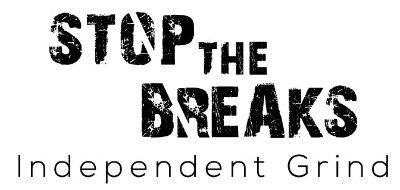
Music has been a part of the human experience for thousands of years and remains a universal language that all understand. We sing and hum along, we sway and dance to the beat in times of celebration, and during low times, music will uplift the spirit and refresh the mind.
Music Therapy in Ancient Times
As far back as the early civilization days, music therapy has been a powerful tool for dealing with mental health problems. Quite a bit is known about music therapy in ancient Greece, where great philosophers of the time advocated for listening to music for its therapeutic benefits. The same was the case in Native American culture, which continues to date.
Modern Music Therapy
Modern music therapy as know it today, traces its origins right after World War II in the 1940s. Community musicians would play music for the thousands of soldiers institutionalized with not just physical, but emotional and mental trauma. Post-traumatic stress disorder (PTSD) was rampant, but physicians noted that the soldiers responded so well to the music therapy, and before long, musicians were being hired in most of the veteran hospitals.
How It Works
Music keeps evolving, and today, there are many genres to choose from as suits your preference. Each genre has its benefits for the mind, and according to Lottoland’s article, even rock music that has been misunderstood by too many for too long, can improve your health.
Music therapy in its various forms be it songwriting, singing and chanting, meditating to music or dancing to music is, indeed the lifeline to better mental health in the following ways.
Stress Buster
Music can have a calming effect even when facing the most stressful of circumstances. For most people, some slow and soothing music playing in the background is more than enough to calm the nerves and bust the stress.
Long breaths and good music through the ears can help you relax and not stress too much over that job interview you are on your way to, or the project deadlines you have to meet.
A calmer and stress-free mind can think more clearly, boosting your productivity.
A mood Booster
According to a World Journal of Psychiatry review, there is evidence to support the effectiveness of music therapy in treating mood disorders that are common among people suffering from neurological conditions such as dementia and Parkinson’s disease.
This mood-lifting effect is for everyone, young and old, healthy or otherwise. Passive or active music therapy stimulates the production of feel-good hormones in the brain, which in turn, boosts moods.
Overcoming Anxiety and Depression
A bit of stress from time to time, and feeling the blues happens to just about everyone. As already outlined, music does help with both. Anxiety and depression, on the other hand, can be long term, which is the more reason why you should try all therapies, including music therapy, to best manage the condition.
Music therapy helps with managing the symptoms of depression as well as both general and social anxiety. You will be able to stay calm and relax better. In turn, you can look forward to an improved quality of life.
Form of Expression
For most people, lacking a way to best express themselves is often the genesis and catalyst of mental health problems. Keeping so much pent up can surely take its toll on the mind and the emotions.
Music provides the perfect avenue for expression. For some, this is in songwriting, and you will find that the lyrics are laden with so much meaning and emotion. For others, it’s in playing an instrument, while others find that they do well echoing, through song, lyrics written by others, but which resonate best with them.
Improved Sleep Quality
Insomnia is quite common, and the hours of poor, or lack of sleep that come with the condition can take a toll on the mind and the body. Not getting enough restful sleep means you will be waking up tired, cranky, and unable to concentrate.
Listening to some soothing slow music is an excellent sleeping aid and will significantly improve the quality of your sleep. This kind of music will calm your mind and quiet those thoughts, helping you to nod off faster and stay asleep for longer.
In Conclusion
Creating, listening to, and dancing to music brings many benefits to your mental health. From boosting moods to relieving stress and music is not just good to your ears but also your mind.



